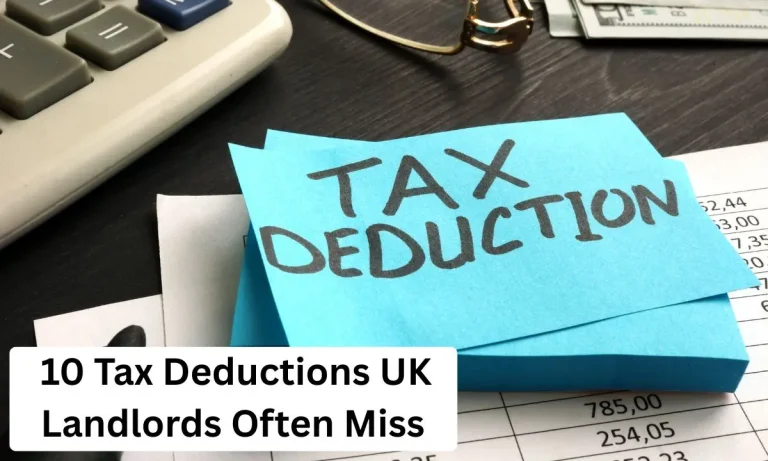If you’re a landlord in the UK, the difference in profits can hinge on being able to take advantage of tax allowances. However, even experienced landlords can miss out on deducting some easily recorded, legitimate expenses that reduce their taxable profits. While HMRC does allow a wide range of categories, it really is about understanding what qualifies as an expense and how to record it accurately.
The following is a list of 10 tax allowances that most landlords don’t take advantage of.
1. Replacement of Domestic Items
In April 2016, the wear and tear allowance officially ended and was replaced by the Replacement of Domestic Items Relief. This means that you can claim the cost of replacing items such as beds, carpet, curtains, furniture, or white goods, as long as they are like-for-like replacement costs with items that were already accounted for in your rental.
Tip: The cost of furnishing the property is not eligible; only items that are purchased to replace a current item are.
2. Mileage / Travel Costs
If you visit your property for inspection, repairs, or to meet your tenants, you can claim the cost of the mileage to travel. If you use a personal vehicle, you can claim the standard HMRC rate of mileage (currently 45p per mile for the first 10,000 miles). A logbook of trips made will need to be kept (even short trips are important for avoiding troublesome tax issues).
3. Professional Fees
Landlords often forget that accountant, letting agent, and legal fees can be treated as deductible expenses. This goes for all fees paid to a qualified accountant for tax returns on rental income or a solicitor for tenancy agreements, for example, or any of the fees that are also legitimate expenses incurred “wholly and exclusively” for the purpose of rental business.
4. Advertising and Marketing Costs
Advertising and marketing costs to find new tenants for your buy-to-let rental should be considered an allowable expense too. These expenses include all costs associated with running an online or newspaper advertisement for your rental or similar costs incurred through an agency on your behalf. As the market for rentals becomes more competitive, these costs start to add up, so don’t ignore them.
5. Landlord Insurance Premiums
Another allowable expense you have paid for to claim against your rental income taxes is insurance premiums paid for your rental property itself. Premiums paid for buildings, contents, or rent guarantee insurance are all allowable expenses against your rental income tax. One word of caution on insurance though: make sure you keep any other non-rental insurance premiums outside of your deductions, like your own insurance on your own home, for example.
6. Utility Bills and Council Tax (When You Pay Them)
If your rental agreement is written such that you, as the landlord, are responsible for the utility costs or council taxes owed on your rental property either during a void period or as part of an ongoing tenancy, you can also deduct those bills you had to pay. Utility bills should also be allowed during any temporary periods between tenants.
7. Maintenance and Repairs
One common misconception that landlords have is the difference between repairs and improvements. Repairs, such as fixing a leaking roof or repainting walls, can be deducted in full in the tax year they occur; improvements, such as building an extension or adding a kitchen in an area that previously did not have one, are capital expenditures and can only be deducted when the appertaining property is sold. Always keep accurate records, and if there are any questions about your individual tax obligations, always consult a tax professional.
8. Subscriptions and Training
Subscriptions to professional bodies that oversee landlords, associations for landlords, and training courses that build your property management knowledge are also deductible. For example, membership to the National Residential Landlords Association (NRLA), etc. are all tax-deductible.
9. Bank Charges and Interest on Loans
It is important to note that you can claim the interest on loans secured to buy the rental property ; however, this action will depend upon the initial purchase date, because rules regarding the act of claiming have changed recently. New rules state that since 2020 mortgage interest relief can no longer be deducted directly from rental income, instead, landlords are given a tax credit of 20% on the payments of interest instead of a deduction from income. Don’t ever forget to claim the smaller expenses such as bank charges, overdraft fees, or even charges to set up a loan, which it is surprising how often these are not claimed.
10. Use of Home as Office
If you run your property business from home and deal with paperwork, conduct admin, deal with finances for example you may be able to claim some household expenses. HMRC offer a simplified flat rate based on the number of hours the home becomes a place of business; you can also provide a full breakdown of costs to justify your claim.
Final Thoughts
Most landlords overlook deductions not because they want to overpay but simply because they don’t have a clue what they can claim. A record of proper bookkeeping and an annual review with a qualified accountant will address missed opportunities that can create costly mistakes.
Just remember, HMRC are not interested in perfection, they care about accuracy. If you keep clear records and the claims you submit are reasonable and justifiable, you are compliant and can eliminate overpaying on taxes.
Key Takeaway
Every pound saved from taxation is a pound added to your profit. If unsure for what you could potentially claim, it’s well worth discussing with your chartered accountant who specialises in property tax. They will see things with a properly educated set of eyes, that may create opportunities for deductions that weren’t even on your radar — that will allow you to stay compliant while managing to grow profitably in your rental busines

